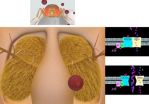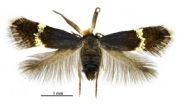(Press-News.org) New research from an international team of scientists suggests evolution, or basic survival techniques adapted by early humans, influences the decisions gamblers make when placing bets.
The findings may help to explain why some treatment options for problem gamblers often don't work, the researchers say.
For the study, recently published in Frontiers in Psychology, scientists from McMaster University, the University of Lethbridge and Liverpool John Moores University examined how gamblers made decision after they won or lost.
They found that, like our ancestors, the gamblers relied on their past experiences to predict what might happen in the future. But in games of chance where the outcome is completely random, this strategy doesn't work.
"If you are tossing a coin and it turns up heads five times in a row, we have this strong feeling that it will turn up tails on the sixth try," explains Jim Lyons, an associate professor of kinesiology at McMaster University and lead researcher on the project. "But the chances are still exactly 50-50."
"The results of our work suggest, perhaps for the first time, that certain aspects of problem gambling behaviour may be related to hard-wired, basic neurobiological factors related to how we direct our attention," he says.
Researchers conducted two experiments to test their theory.
First, participants were asked to observe two targets being illuminated in random sequence. The researchers then gave them money to bet on which target would be illuminated.
Participants maintained the amounts of their bets regardless of whether they won or lost. But in instances where they won, they were more likely to move their bets to the other target for their next wager.
In a second experiment, participants undertook the same test with a partner. Like the first experiment, players maintained the amount of their bets regardless of whether they won or lost. If their partner correctly guessed a target, they were more likely to move on to the next target when their turn came.
Dan Weeks, a psychology researcher at the University of Lethbridge, says humans have evolved to modify their behaviour based on what they experience in the context of their location.
"Humans make rational decisions on a day-to-day basis based on experience. Think about someone picking apples in an orchard. Once the apples from the first tree are picked, it is a rational decision to move on to the next tree," he says.
"These are also important findings because they suggest that, at least in some cases, these behaviours might be resistant to current behavioural intervention strategies," says co-author Digby Elliott, professor of motor control and behavioural neurosciences at Liverpool John Moores University and professor emeritus at McMaster.
Next, the team plans to examine how this sort of behaviour may change as we age, since evidence suggests problem gambling can be particularly acute in the elderly.
###
The complete study can be found at http://www.frontiersin.org/Cognition/10.3389/fpsyg.2013.00072/full
For more information please contact:
Jim Lyons
Associate Professor, Department of Kinesiology
McMaster University
905-525-9140 Ext. 27899
lyonsjl@mcmaster.ca
Michelle Donovan
Public Relations Manager
McMaster University
905-525-9140, ext. 22869
donovam@mcmaster.ca
Wade Hemsworth
Public Relations Manager
McMaster University
905-525-9140, ext. 27988
hemswor@mcmaster.ca END
It's in the cards: Human evolution influences gamblers' decisions, study shows
2013-03-18
ELSE PRESS RELEASES FROM THIS DATE:
Research find links between lifestyle and developing rheumatoid arthritis
2013-03-18
Researchers in Manchester have found a link between several lifestyle factors and pre-existing conditions, including smoking cigarettes and diabetes, and an increased risk of developing rheumatoid arthritis.
Rheumatoid Arthritis (RA) is a chronic disease which affects around 0.8% of the population; and its causes are of great interest to the medical world. Research led by Professor Ian Bruce, NIHR Senior Investigator and Professor of Rheumatology at The University of Manchester and consultant at Central Manchester University Hospitals NHS Foundation Trust, looked into ...
NASA sees leaping lunar dust
2013-03-18
Electrically charged lunar dust near shadowed craters can get lofted above the surface and jump over the shadowed region, bouncing back and forth between sunlit areas on opposite sides, according to new calculations by NASA scientists.
The research is being led by Michael Collier at NASA's Goddard Space Flight Center, Greenbelt, Md., as part of the Dynamic Response of the Environment At the Moon (DREAM) team in partnership with the NASA Lunar Science Institute (NLSI), managed at NASA's Ames Research Center, Moffett Field, Calif.
"The motion of an individual dust particle ...
Earth's interior cycles contributor to long-term sea-level & climate change, scientists conclude
2013-03-18
Ancient rises in sea levels and global warming are partially attributable to cyclical activity below the earth's surface, researchers from New York University and Ottawa's Carleton University have concluded in an analysis of geological studies.
However, the article's authors, NYU's Michael Rampino and Carleton University's Andreas Prokoph, note that changes spurred by the earth's interior are gradual, taking place in periods ranging from 60 million to 140 million years—far less rapidly than those brought on by human activity.
Their analysis appears in Eos, a newspaper ...
Transistor in the fly antenna
2013-03-18
This press release is available in German.
Highly developed antennae containing different types of olfactory receptors allow insects to use minute amounts of odors for orientation towards resources like food, oviposition sites or mates. Scientists at the Max Planck Institute for Chemical Ecology in Jena, Germany, have now used mutant flies and for the first time provided experimental proof that the extremely sensitive olfactory system of fruit flies − they are able to detect a few thousand odor molecules per milliliter of air, whereas humans need hundreds of millions ...
Tiny minotaurs and mini-Casanovas: Ancient pigmy moths reveal secrets of their diversity
2013-03-18
Researchers Robert Hoare (Landcare Research, New Zealand) and Erik van Nieukerken (Naturalis Biodiversity Center, Netherlands) have named new moths after the Minotaur of Greek mythology and the legendary Italian philanderer Giacomo Casanova in a study of the evolution of southern pigmy moths. The study was published in the open access journal ZooKeys.
The tiny moths, with wingspans of 3 to 8 millimetres, belong to a very old group (the family Nepticulidae), which dates back more than 110 million years to the time of the dinosaurs. Australian pigmy moths are particularly ...
Blood levels of fat cell hormone may predict severity of migraines
2013-03-18
In a small, preliminary study of regular migraine sufferers, scientists have found that measuring a fat-derived protein called adiponectin (ADP) before and after migraine treatment can accurately reveal which headache victims felt pain relief.
A report on the study of people experiencing two to 12 migraine headaches per month, led by researchers at Johns Hopkins, is published in the March issue of the journal Headache.
"This study takes the first steps in identifying a potential biomarker for migraine that predicts treatment response and, we hope, can one day be used ...
Study shows rising rate of propofol abuse by health care professionals
2013-03-18
Philadelphia, Pa. (March 18, 2013) – Abuse of the anesthesia drug propofol is a "rapidly progressive form of substance dependence" that is being more commonly seen among health care professionals, reports a study in the April Journal of Addiction Medicine, the official journal of the American Society of Addiction Medicine. The journal is published by Lippincott Williams & Wilkins, a part of Wolters Kluwer Health.
"Propofol addiction is a virulent and debilitating form of substance dependence" with a "rapid downhill course," write Drs Paul Earley and Torin Finver of ...
Suggestions for a middle ground between unlogged forest and intensively managed lands
2013-03-18
It is increasingly recognized that protected areas alone are not sufficient for successful biodiversity conservation, and that management of production areas (e.g. forestry and agricultural land) plays a crucial role in that respect. Retention forestry and agroforestry are two land management systems aiming to reconcile the production of human goods with biodiversity conservation.
The retention forestry model is, as the name suggests, based on retaining some of the local forest structures when harvesting trees in an attempt to preserve local biodiversity. Agroforestry ...
Can online chat rooms and 'cyberhugs' help chronic pain sufferers cope?
2013-03-18
New Rochelle, NY, March 18, 2013—The more than 100 million Americans living with chronic pain and daily suffering often have limited outlets to talk about their conditions with others who can understand and offer comfort. Online chatrooms may provide a beneficial forum where chronic pain sufferers can openly and safely communicate, as discussed in an article in Cyberpsychology, Behavior, and Social Networking, a peer-reviewed journal from Mary Ann Liebert, Inc., publishers. The article is available free online on the Cyberpsychology, Behavior, and Social Networking website. ...
Chemical trickery explored to help contain potato pest
2013-03-18
This press release is available in Spanish.
The pale cyst nematode, Globodera pallida, is one bad roundworm.
Unchecked, the pest burrows into potato roots to feed, obstructing nutrients and causing stunted growth, wilted leaves and other symptoms that can eventually kill the plant. Severe infestations can cause tuber yield losses of up to 80 percent.
Now, however, U.S. Department of Agriculture (USDA) and cooperating scientists are evaluating new ways to control G. pallida using naturally occurring chemicals called egg-hatching factors.
According to lead scientist ...




